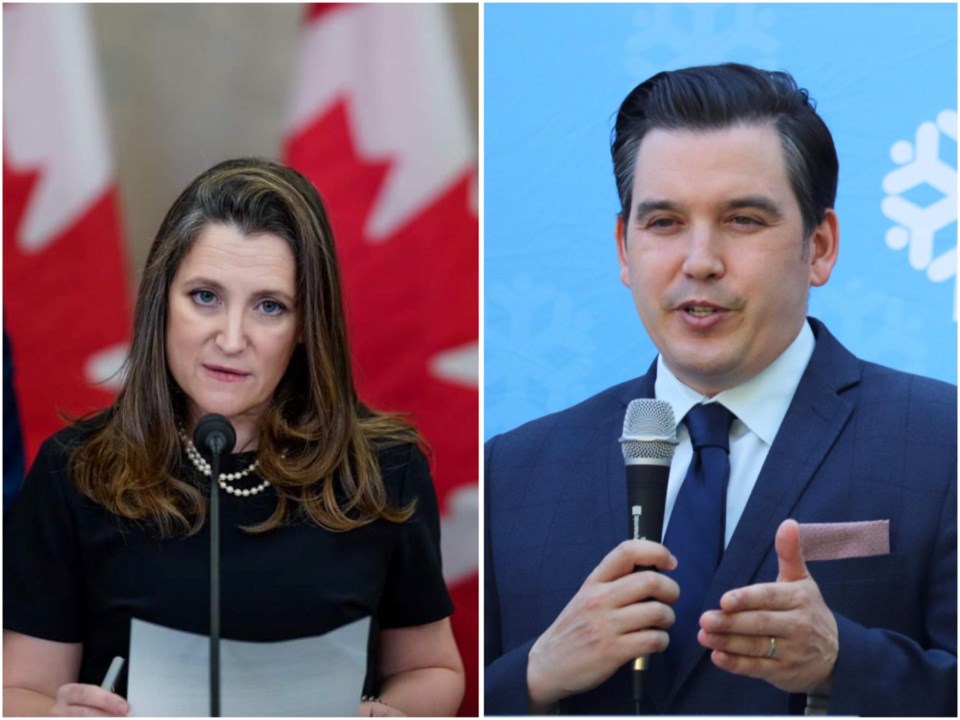Another Burnaby politician is speaking out after Deputy Prime Minister Chrystia Freeland was harassed during a recent visit to Alberta.
Burnaby North-Seymour MP Terry Beech followed suit after Burnaby South MP Jagmeet Singh also condemned the incident involving the federal finance minister.
"This incident was unfortunate and unacceptable," Beech said in a social media post.
"I just returned from a trip to Calgary, where I participated in a roundtable on oil and gas, and visited a world-class affordable housing project with the YWCA among other activities. Alberta is doing amazing things and is full of thoughtful, innovative, empathetic and hard working people. Our government has been working alongside the people of Alberta to grow the economy and make life more affordable."
In a video posted online, a man and woman approached Freeland and staff members as they waited to get into an elevator in the lobby of a building in Grande Prairie, Alta. on Aug. 26.
The man calls Freeland by name, to which she responds "Yes?"
He then hurls numerous profanities at Freeland, and calls her a "traitor" while saying she doesn't belong in the province.
While she's the MP for the Toronto riding of University—Rosedale, Freeland was born in Peace River, Alta.
Freeland took to social media the day after the incident, saying she was going to keep coming back despite the verbal attack, saying one unpleasant incident won't change how she feels about Albertans.
"What happened yesterday (Aug. 26) was wrong," she wrote.
"Nobody, anywhere, should have to put up with threats and intimidation."
On Tuesday (Aug. 30), Alberta RCMP said it will be investigating the incident.
In a statement, Mounties spokesperson Robin Percival says physical or verbal actions in person or online can have significant effects and may be against the law.
She says when the threshold for a criminal charge is met, RCMP or police of the jurisdiction may arrest and lay charges.
If the criminal threshold is not met, officers examine the threats and derogatory comments from an intelligence perspective.
Under RCMP regulations, MPs can receive police protection in Canada and abroad as needed.
"For security reasons, the RCMP doesn't comment on specifics when it comes to security measures afforded to the deputy prime minister," Percival said.
Protective measures are intelligence-led and are proportional to any threats or risks assessed by the RCMP, the federal threat assessment centre and other partners, she added.
"The RCMP continuously reviews its protective measures and practices in place in order to ensure a safe and secure environment for protectees."
- with files from The Canadian Press

